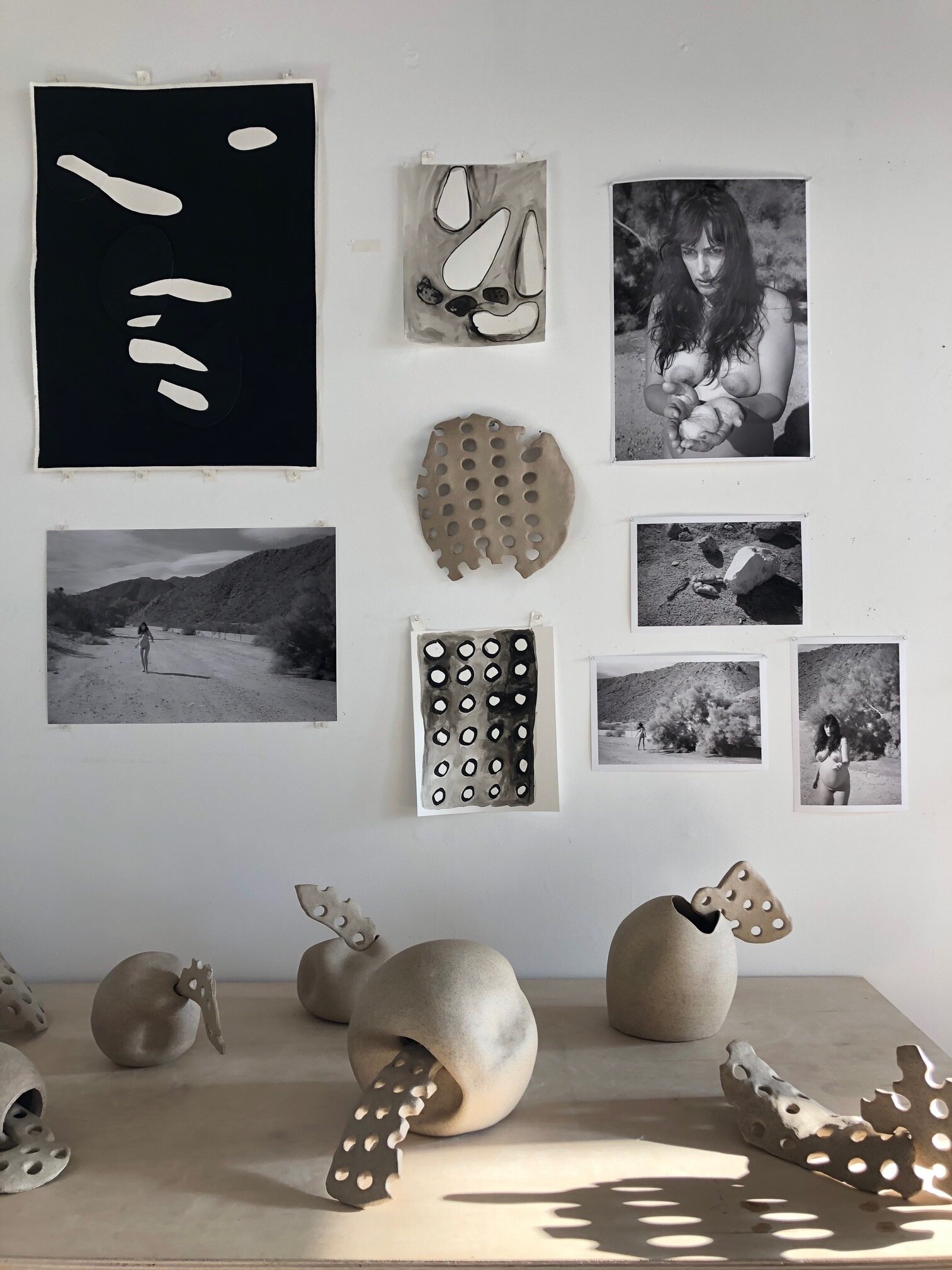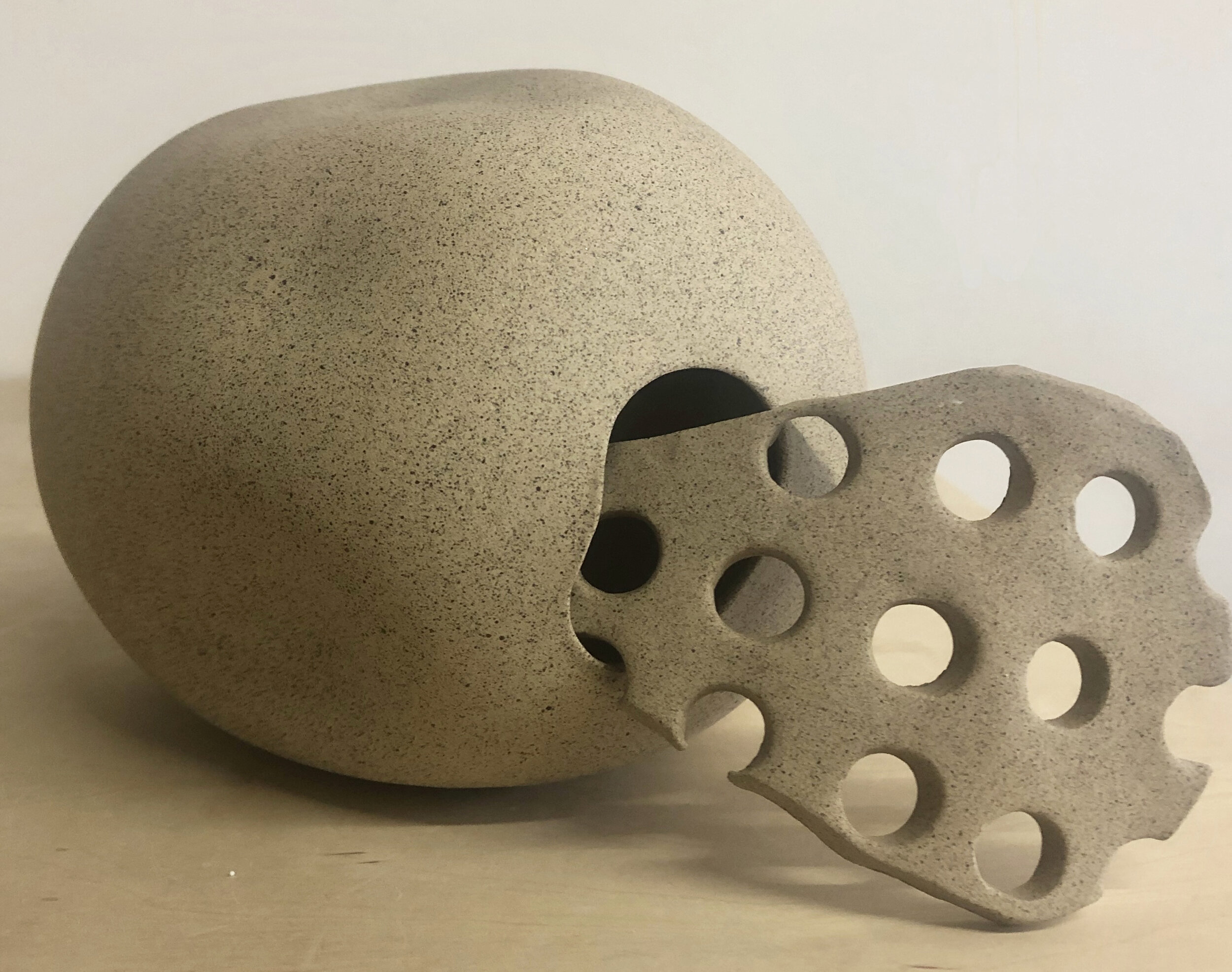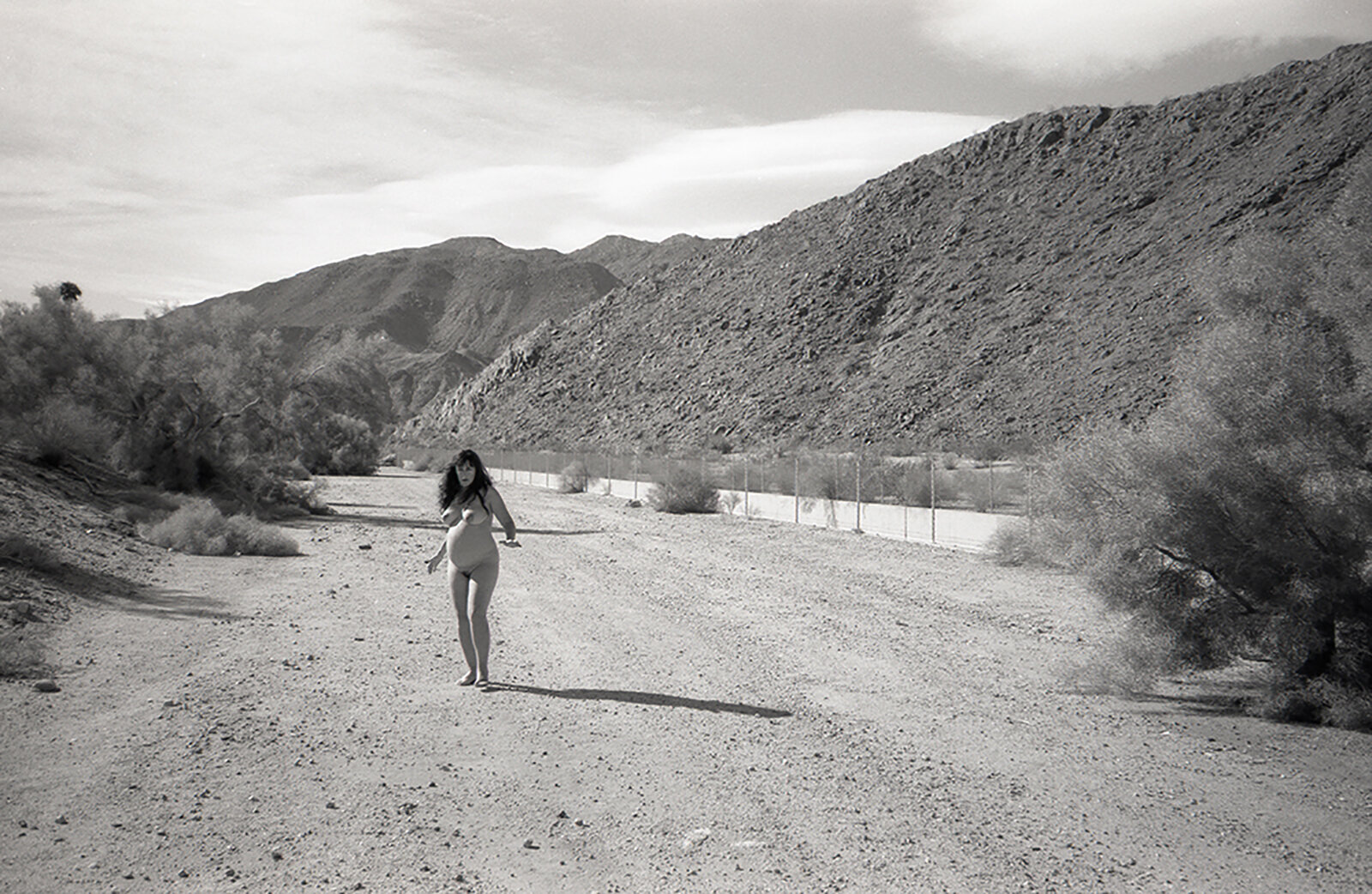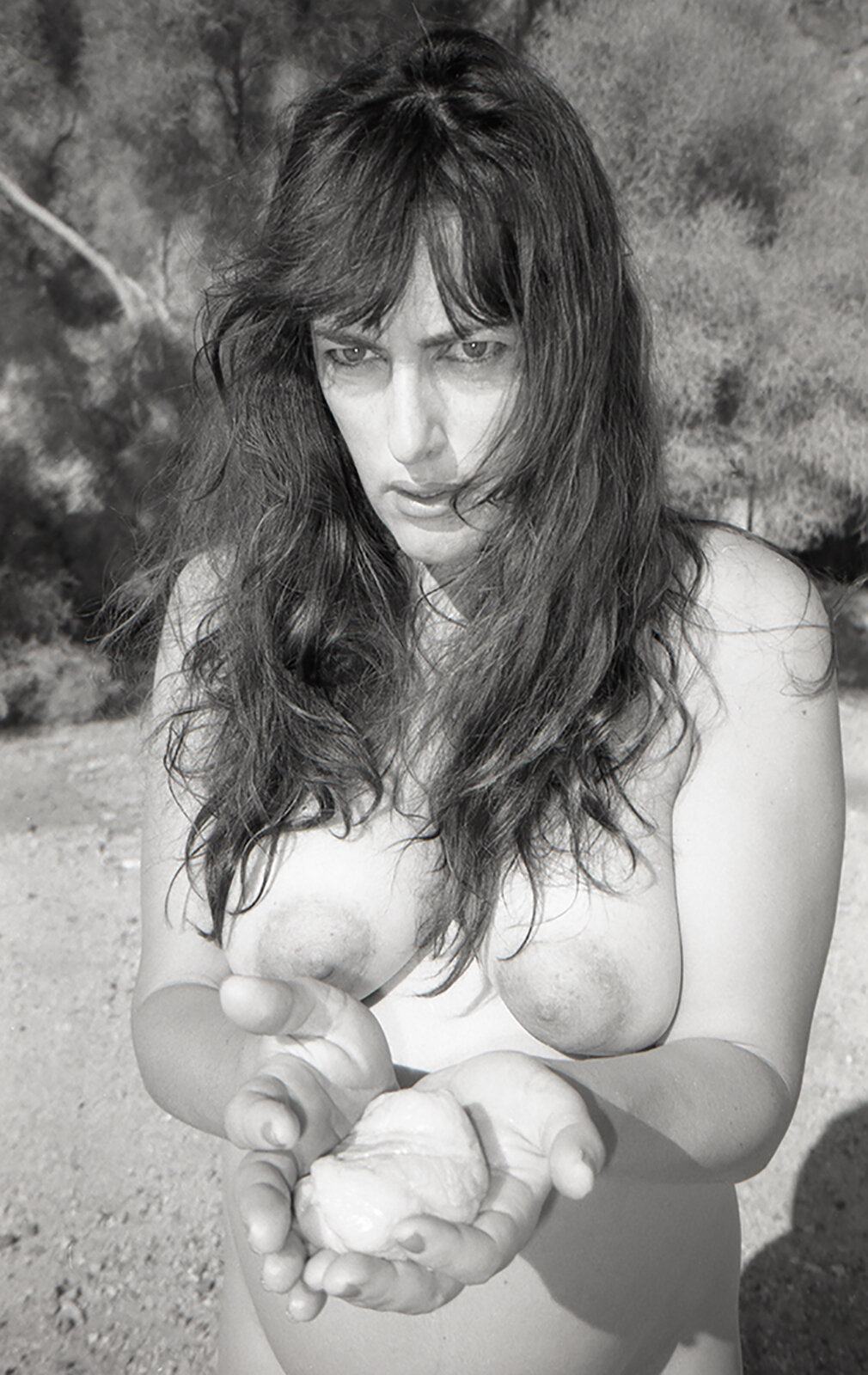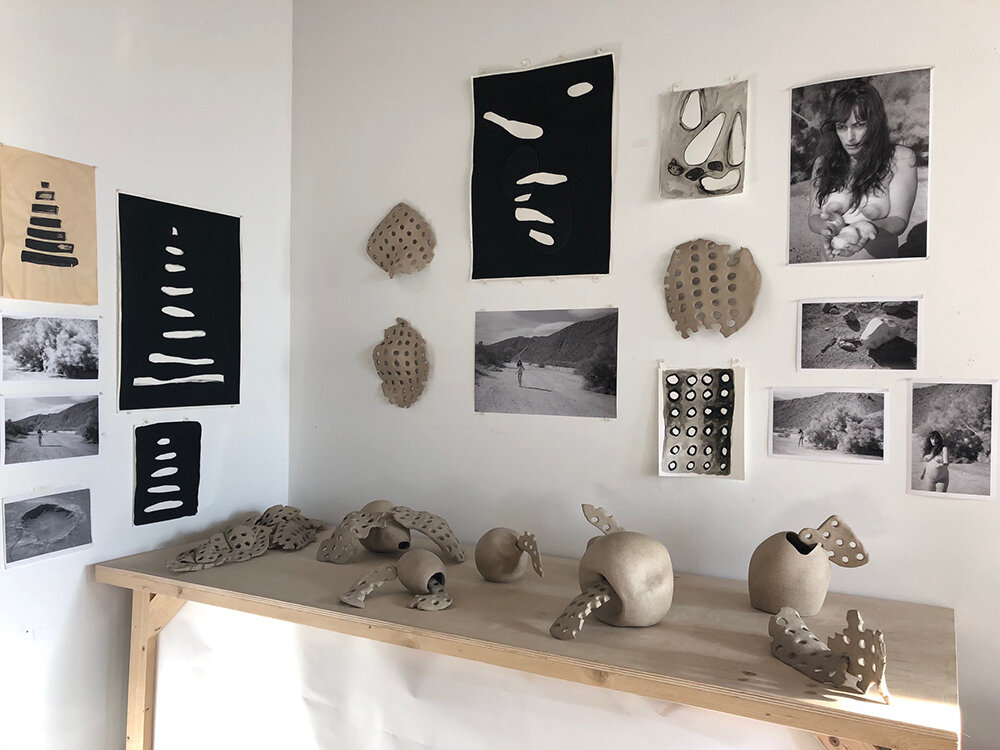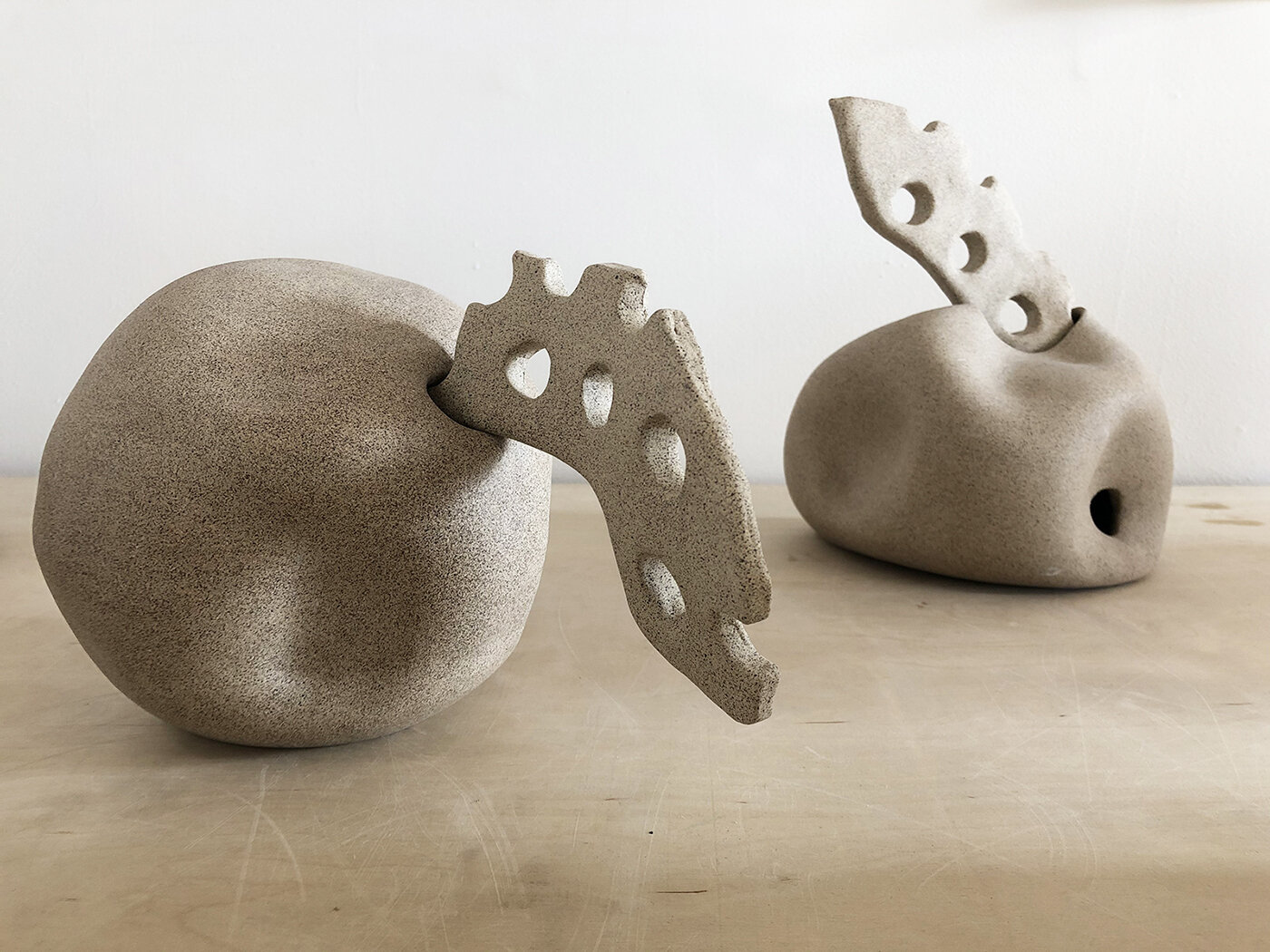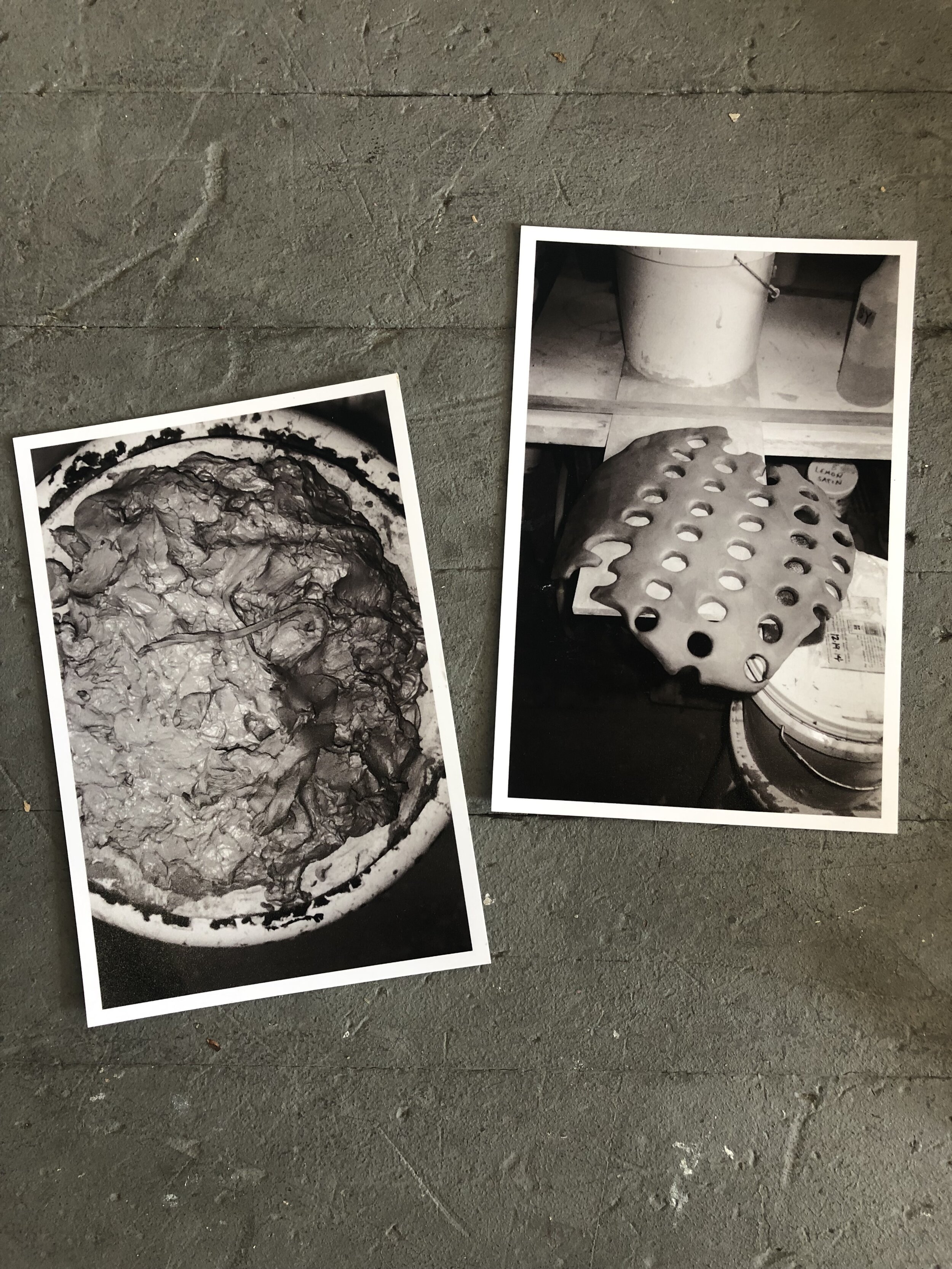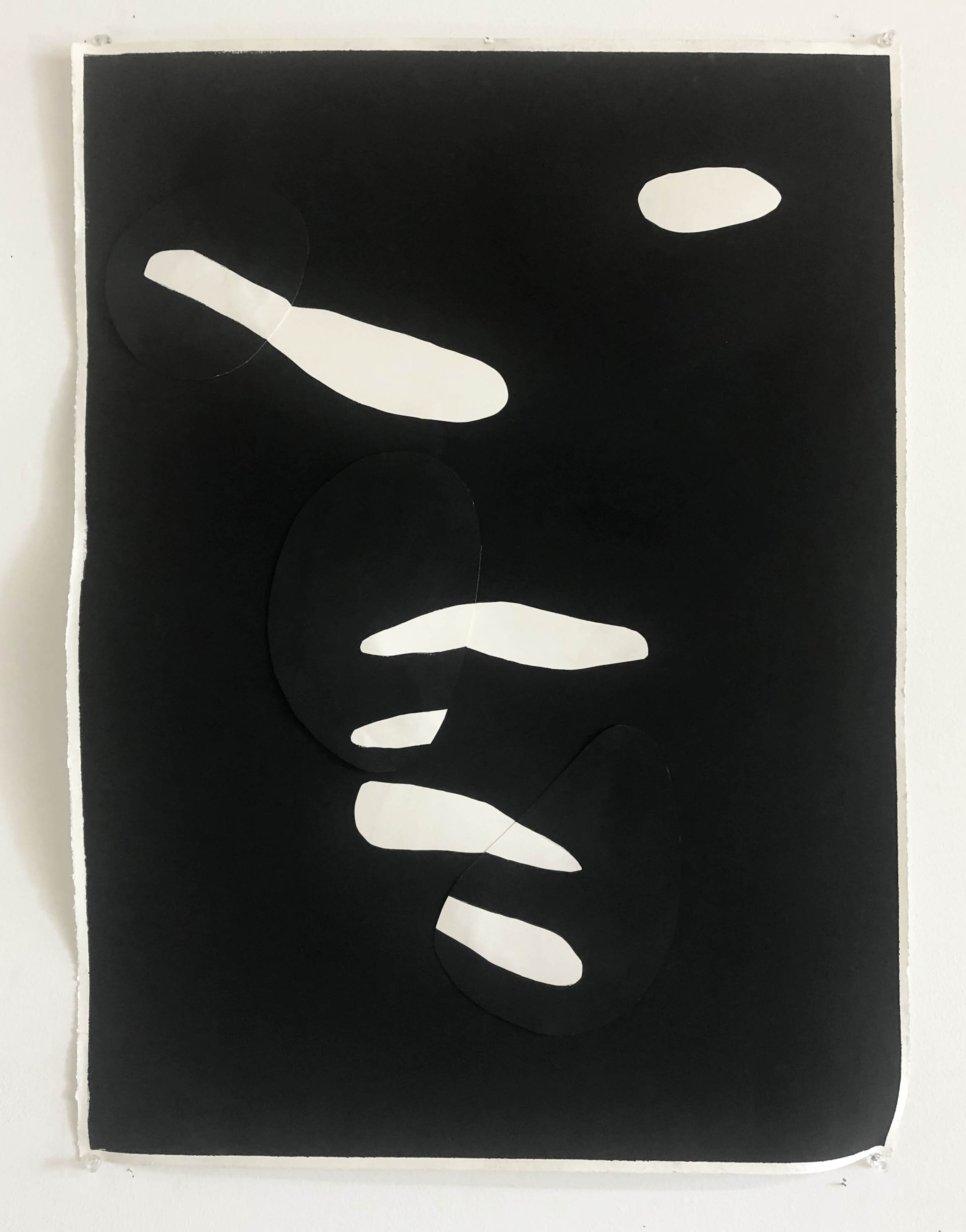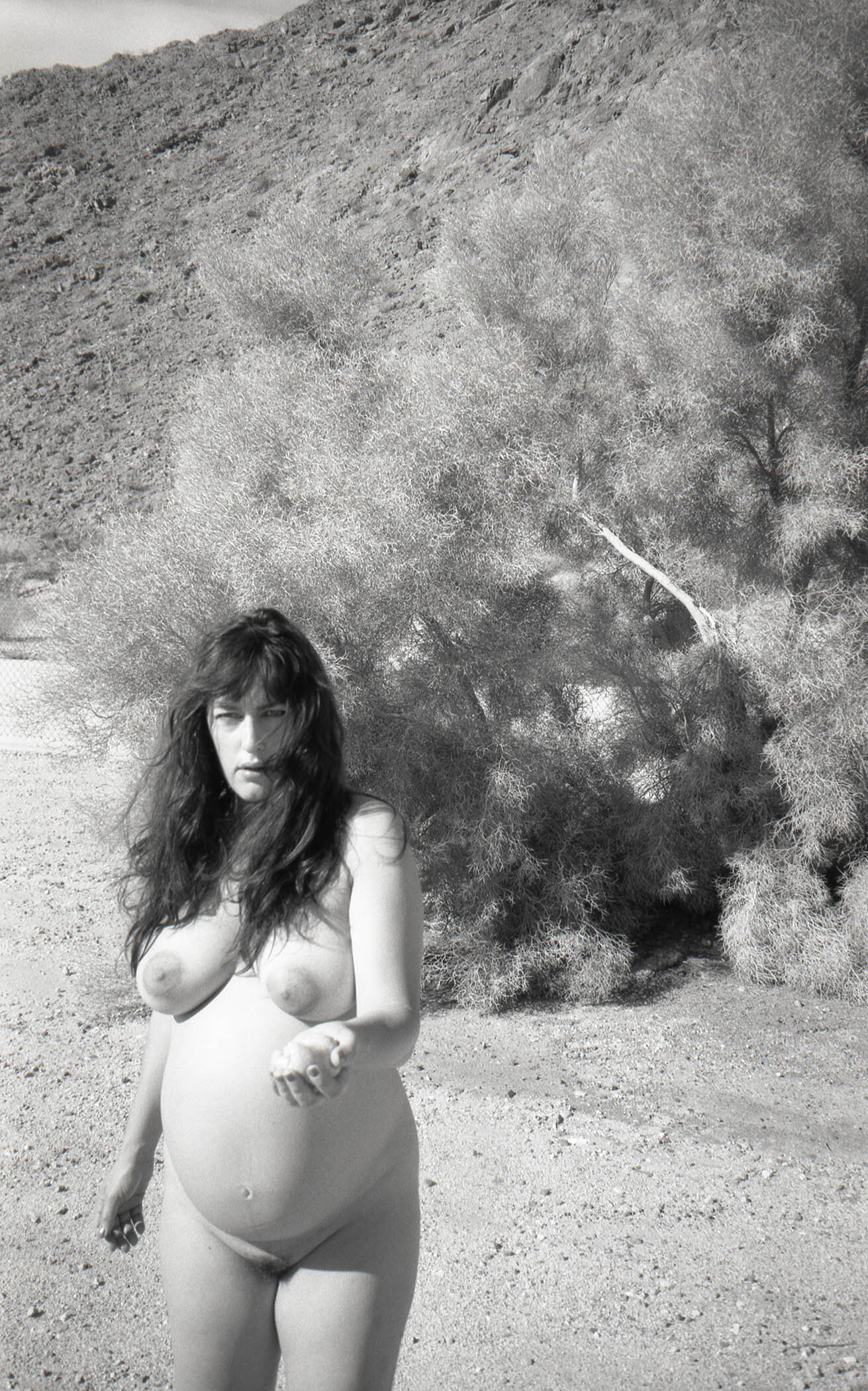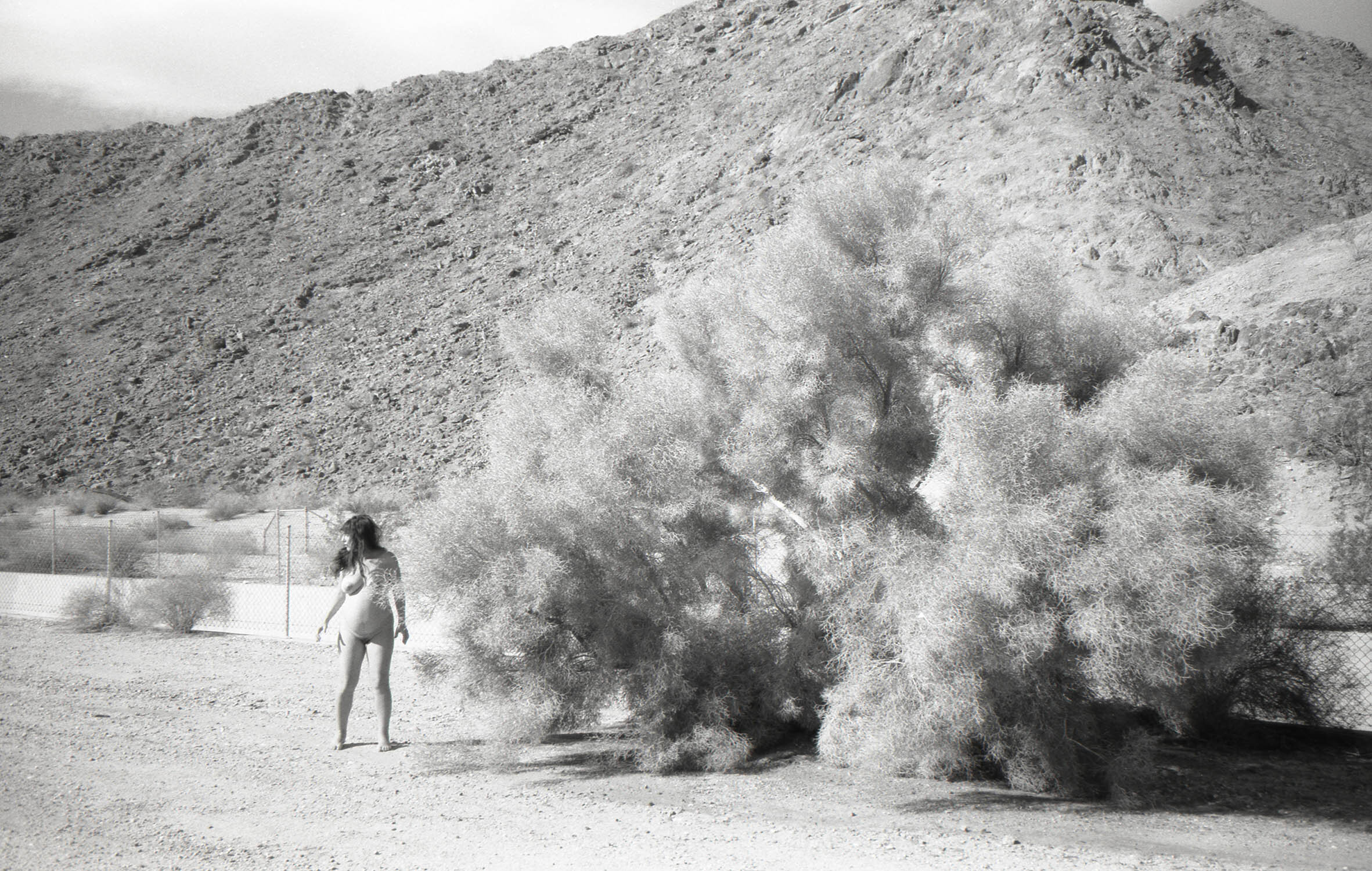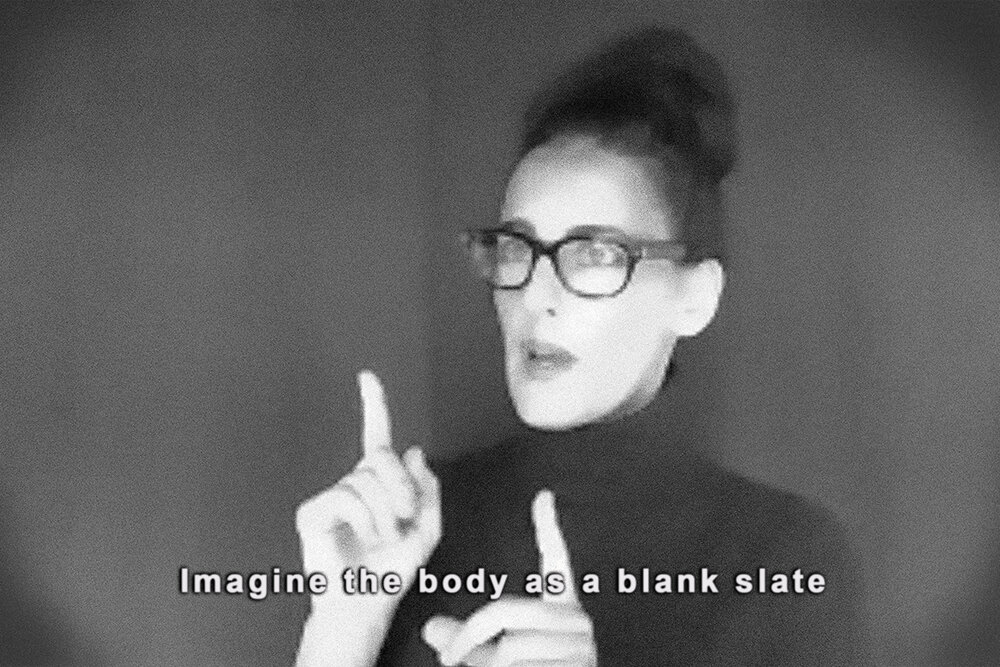NUOVA
“Nuova,” is a multi-media site-specific installation that centers around an imagined feminist Italian science fiction film from the 1970’s. The film’s protagonist is a pregnant being, recently arrived on Earth, and the narrative is inspired by the classic science fiction tropes of mysterious gestation, otherness, escape and arrival, which closely align with my own experiences entering motherhood.
Embracing the notion of experimental authorship, I assume the role of filmmaker, actor, writer and production designer. Harnessing the performative potential of my (then-pregnant) body, I created production stills for the film shot on location in a desert, as well as production drawings, and ceramic props. Using period materials, I created an archive of ephemera about the filmmaker, the film and its legacy, melding fact with fiction.. In collaboration with a composer, I created a score inspired by the “musique concrete” movement, which plays on a turntable. The works are also accompanied by an era-specific radio interview with the “filmmaker” in Italian (with English overdub) which viewers can listen to on headphones.
This project was inspired by two bodies of feminist work. It borrows modes of theoretical inquiry from decades of feminist film theory, considering spectatorship, spectacle and gaze as well as the revolutionary goal of feminist “counter cinema," to deconstruct visual and narratives codes and explore female subjectivity,. “Nuova” is also inspired by Italian feminist Carla Lonzi and the "Rivolte Femminile" movement of the 1970s. Lonzi and her colleagues’ supported an eerily prescient rejection of notions of equality in favor of radical dismantling of the patriarchal framework. In her 1970 manifesto, “Let’s Spit on Hegel,” Lonzi declared: “Equality is what is offered as legal rights to colonized people. And what is imposed on them as culture.” She imagined a revolutionary transformation of human consciousness, social life and private life, in which woman is no longer defined in relation to man.
Curator Rashmi Viswanathan, who brought the project to Kunsthalle Exnergasse in Vienna, describes it this way: “Shaoul’s fictional archive ignites the potential of the image to generate imaginative worlds—worlds within which the woman is unfettered, non-socialized, and beyond the symbolic order. Freed of history, she is free.”
